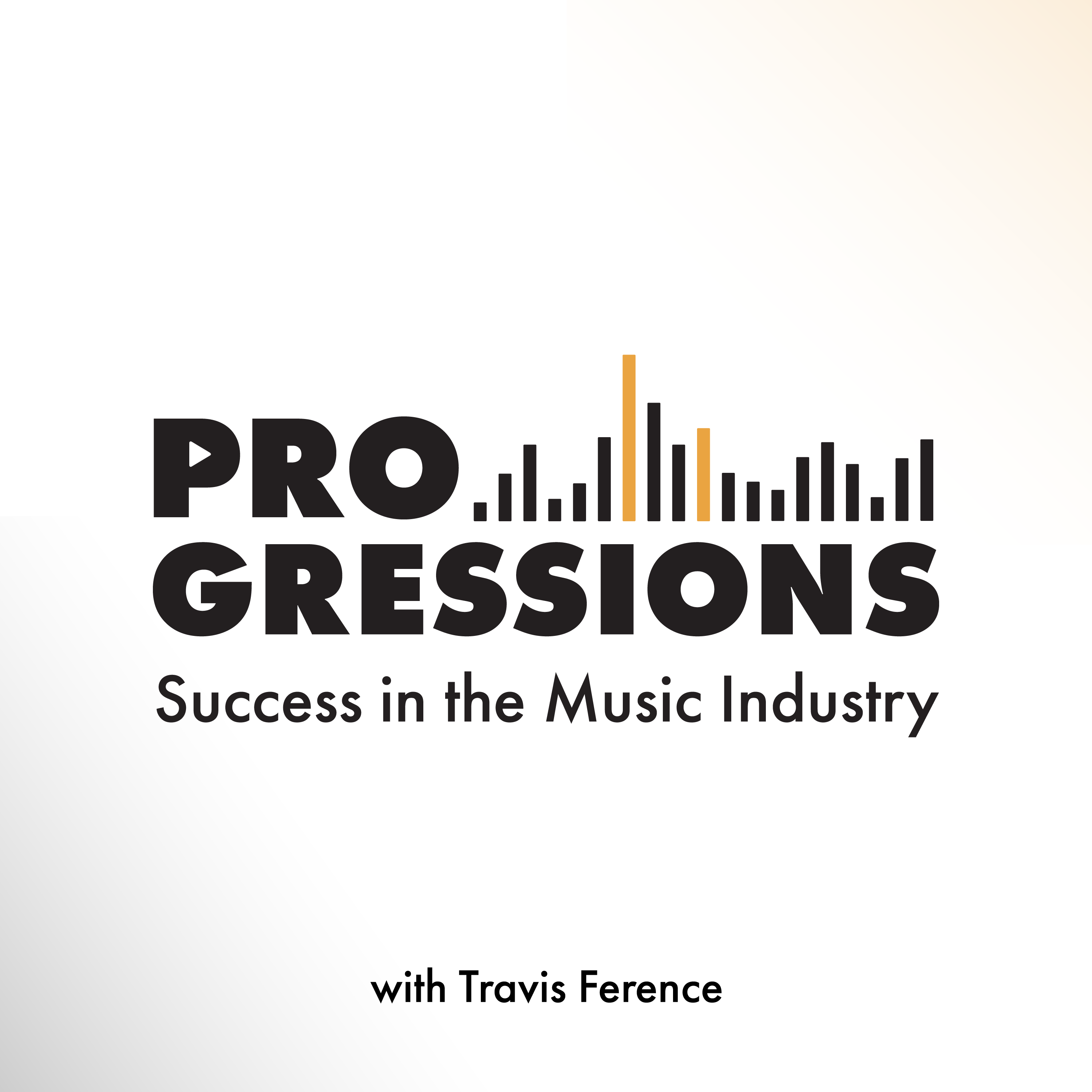The Super Mario Effect: Level Up Your Music Career with Science
In this episode we’re exploring the “Super Mario Effect” and how it can be used to level up in the music industry. Drawing from former NASA engineer Mark Rober’s experiment, we discover how reframing our approach to failure can lead to a gamified approach to career growth.
Mark Rober - https://www.youtube.com/@MarkRober
References and Video Clips from Mark’s Ted X Talk - https://youtu.be/9vJRopau0g0?si=fWzaBVFRwZ2ku2Ij
⬇️ FREE 2025 PLANNING WORKSHOP ⬇️
https://www.travisference.com/2025plan
📺 WATCH THE SHOW ON YOUTUBE 📺
https://www.youtube.com/@progressionspod
Connect with Me:
📬 Newsletter: https://www.travisference.com/subscribe
📸 Instagram: https://www.instagram.com/progressionspod
🎵TikTok: https://tiktok.com/@progressionspod
🐦 Twitter: https://twitter.com/progressionspod
🌐 Website: https://www.travisference.com/
🙏 Leave a Review or Rating 🙏
Apple: https://www.progressionspodcast.com/apple
Spotify: https://www.progressionspodcast.com/spotify
📢 Our Sponsors 📢
Listen to Secret Sonics!
Sign Up for Complete Producer Network!
Credits:
Guest: N/A
Host: Travis Ference
Editor: Travis Ference
Theme Music: inter.ference
Transcript
What if making it in the music industry was just like playing a video game
Speaker:wouldn't make this whole thing a little bit easier? Well, this could be the cheat
Speaker:code you're looking for, and it's scientifically proven.
Speaker:Under my career and seen paralleled in many of the people around me, is the
Speaker:amount of emphasis we put on a single opportunity. Maybe
Speaker:you've landed a big playlist or sync placement, only to be disappointed by
Speaker:the minimal amount of traction you actually gained. Or
Speaker:a common example in the production and mixing realm would be working with an already
Speaker:established artist or hot new artist thinking it would be a big boost for your
Speaker:career. We expect a lot to come from these big opportunities, and
Speaker:when things don't line up with those expectations, we can get pretty knocked
Speaker:down. Trust me, I've felt it plenty of times. So what if we could
Speaker:reframe our approach to failure? What if we could take the weight off those opportunities
Speaker:in a way that would actually encourage us to keep playing the game? Enter
Speaker:the super Mario effect. The Super Mario
Speaker:effect is an idea that was put forth by a NASA scientist named Mark Rober.
Speaker:It's based on an experiment that he ran with 50,000 participants. The premise of
Speaker:the experiment is that he invited subscribers of his YouTube channel to play a game
Speaker:that he created. The game involved trying to move a car from the start of
Speaker:a maze to the end by arranging blocks of text that were
Speaker:simplified versions of computer code. Stuff like if square is
Speaker:blue, move forward, repeat two times. Stuff like that. The participants were
Speaker:told that they were part of an experiment to prove that anyone could learn to
Speaker:code, but in reality, they were part of an experiment to test how they
Speaker:reacted to failure. Each time someone attempted the puzzle incorrectly, they were
Speaker:prompted with a message. Half the participants received a message that said, that
Speaker:didn't work, please try again. The other half got that didn't
Speaker:work. You lost five points. You now have 195
Speaker:points. Please try again. The results were as you'd expect. People who were losing
Speaker:points with each failed attempt had a success rate of 52% for solving the puzzle,
Speaker:while people who were not losing points had a success rate of 68%, a
Speaker:total of 16 points higher. But the interesting revelation of the data is
Speaker:that participants who were losing points made fewer attempts to solve the
Speaker:puzzle. The average for that group was five attempts, while the other group tried an
Speaker:average of twelve times. That's more than double the number of attempts. This says
Speaker:a lot about how our perception of failure affects our willingness to try
Speaker:again. The negative connotation of losing points for each failed
Speaker:attempt discouraged those participants from wanting to continue.
Speaker:Does that sound familiar to those overweighted expectations we discussed earlier?
Speaker:So let's pause on the science experiment for a minute and talk about video games.
Speaker:As a child of the 80s who spent more than enough time in front of
Speaker:a Nintendo, this is very relatable to me, early video games were very much
Speaker:about learning what comes next. These days, things are a bit more randomized and complex.
Speaker:But in Super Mario, everything happened just as it was coded to happen. You
Speaker:knew where the bad guys were going to be. You knew what boxes had, what
Speaker:power ups, which pipes were secret passageways, etc. But only
Speaker:after you'd made it to that level before making it to a new level with
Speaker:only one life left was always super nerve wracking, right?
Speaker:You made it the furthest you'd ever been, but you only had one chance
Speaker:left before you had to start over.
Speaker:But if you didn't make it through, you wouldn't feel like a failure. You just
Speaker:feel that next time you'd for sure beat that level, because now you knew what
Speaker:to expect, right? You knew when to jump or duck, etc. You
Speaker:were excited for the challenge. So if we bring that idea back to mark Rober's
Speaker:experiment, the participants losing points became more concerned with their
Speaker:failure because of the fear of running out of points. On the other hand,
Speaker:the participants who were not penalized had a more gamified approach to their
Speaker:efforts. They were continuing on because they wanted to. Many of us in the music
Speaker:industry have a never give up attitude, myself included. In fact, on
Speaker:this podcast, I've even said that making it in this industry is a little bit
Speaker:like being the last person standing, right? Eventually you'll make it
Speaker:because other people will quit. Mark Rober offers an alternate
Speaker:perspective to that. He suggests that having a never give up
Speaker:attitude implies that we're actually working against our own desire
Speaker:to quit. Think about that for a second. Being focused on not quitting
Speaker:implies that you're actually doing something that you don't want to do. And that's
Speaker:not what we're doing. We're making music. We want to make music. So we should
Speaker:reframe our perception of failure to match that. So then what's the Super Mario
Speaker:effect look like for your career? It's just like those early video games. There are
Speaker:no crystal balls for a career. Nobody knows the outcome of their own
Speaker:journey. We can set our targets and plan our strategy, but ultimately, it's the
Speaker:experience of doing that we learn from, just like Super Mario. Until we
Speaker:reach the next level we won't know what to expect. You won't know if the
Speaker:TikTok strategy for your next single will work until you try it. You won't know
Speaker:if the lyrics of a song resonate with people until you play it, and you
Speaker:won't know if your new production or mixing technique will work until you put
Speaker:it into a track. I could go on, but I think you get the point.
Speaker:Every day we are learning something new about our journey and we should be
Speaker:using those insights to fuel our excitement to reach the next level. Like I mentioned,
Speaker:in the beginning, we have a tendency to focus on the negative aspects of the
Speaker:way that things are going. The act of failing often outweighs the experience
Speaker:gained by facing a challenge. Mark said that if we focus on the cool
Speaker:end goal, then the fear of failure is taken off the table and
Speaker:instead failure becomes an opportunity to gain the experience to make it to the
Speaker:next level.


